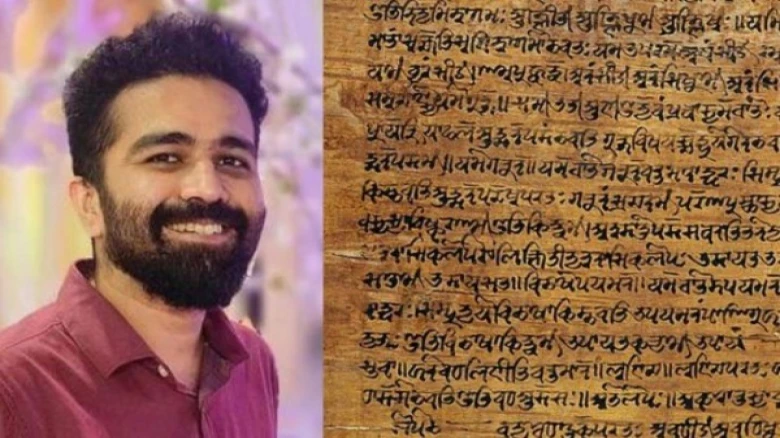Mr Rajpopat is a PhD student at St. John's College, Cambridge, in the faculty of Asian and Middle Eastern Studies...
Digital Desk: An Indian Ph.D. student at the University of Cambridge has solved a Sanskrit grammatical puzzle that has confounded researchers since the fifth century BC. According to the BBC, 27-year-old Rishi Atul Rajpopat decoded a text penned by the Sanskrit language master Panini, a master of the ancient Sanskrit language who lived roughly two and a half thousand years ago.
Mr Rajpopat, in particular, is a PhD student at St. John's College, Cambridge, in the faculty of Asian and Middle Eastern Studies.
As per the Independent, Panini taught a "metarule" which is traditionally taken by scholars as meaning: "in the event of a dispute between two rules of equal strength, the rule that occurs later in grammar's serial sequence wins". However, this frequently resulted in linguistically wrong results.
Rajpopat denied this customary understanding of the metarule, arguing that Panini meant that we should select the rule applicable to the right side of a word over the rule applicable to the left side. He concluded that Panini's "language machine" produced grammatically correct words with few omissions.
"In Cambridge, I had a eureka moment. I was almost ready to give up after nine months of attempting to solve this problem. So I put away the books for a month and spent time swimming, riding, cooking, praying, and thinking. Then, unhappily I went back to work, and, within minutes, as I flipped the pages, these patterns started developing, and it all started to make sense, "He told the Independent about it. It took him another two years to solve the problem.
Prof Vergiani expressed his delight at the revelation, saying, "Rishi, one of my students, has cracked it: he has discovered an astonishingly elegant solution to a problem that has baffled researchers for millennia. This revelation will revolutionise the study of Sanskrit at a time when the language's popularity is on the rise."
Sanskrit is only spoken in India by an estimated 25,000 people out of a population of more than one billion, Cambridge University stated.

Leave A Comment